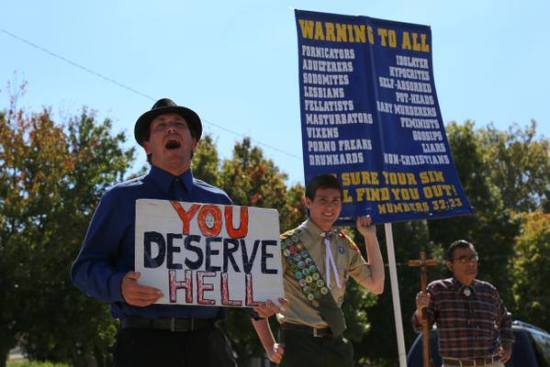Every few years, I add a birthday post composed of uncategorized thoughts and opinions currently rattling around the ol’ noggin. It’s a way, I suppose, of taking stock or marking time. Perhaps both. In becoming a senior pastor – which is a pretty significant thing that happened this year – I worried I would struggle to come up with content to teach my congregation each and every Sunday, year in and year out. What if the well ran dry?
I quickly realized two things. First, a lot of preaching is repetition. In the last eight months, I’ve repeated specific truths way more than I’ve introduced new ones. I suspect this is necessary, just as it usually takes several solid strikes to drive a nail. Second, while a lot of the beliefs, thoughts, and musings claiming real-estate in my headspace these days are significant, the abruptness of these opinions aren’t always the easiest to weave into a sermon. They are like unripened avocados – everything is there for edibility, but not yet easy to swallow.
This past Saturday, I turned 40. The big 4-oh! So, yeah, quite a bit fills my mind these days. Family, career, home ownership, community involvement… These are only some of the sources for the half-formed notions that follow. I offer no explanation for them here, nor have I listed them in any discernible order. They are merely strands of concern and conviction of this now forty-year-old pastor.
- These days we hold at the tip of our minds a hundred different opinions we believe are not only significant, but are also indivisibly tied to our identities. As such, to have even one of these beliefs ignored or disagreed with has become the modern-day equivalent of a glove across the face.
- Journalism is meant to be persistent for truth, to acquire and protect sources, and even, at times, to write critically of powerful people who attempt to gaslight the world. There is, of course, such a thing as “fake news,” but it very rarely comes from the places our current President would have us believe.
- I don’t know why, but I’m proud to have never watched a single episode of The Big Bang Theory or Glee.
- The American Church is fighting over scraps. We’re planting far too many new churches in towns already full of them, and this only contributes to an increase in consumeristic Christianity, not to mention an inevitable ethos of competition as each church strives not so much to bear witness to the gospel as to put on the best Sunday show and offer the most self-focused spiritual programming.
- Three years ago, I rated my wife’s tendency to be right at 96.7%. Over the last three years, that percentage has held strong, if not gone up a bit.
- I’m not sure of the specific reasons, but I know from experience it is increasingly difficult to find a doctor (be it a GP or a specialist) who actually cares about your physical ailments and will truly give his/her time and energy to helping you get better.
- I find most people who quote Romans 6:14, “We are not under law but under grace,” vastly misunderstand Romans in particular and the Apostle Paul’s message in general. If I hear one more minister teach that the Old Testament law does not apply to Christians, I’m going to violate the sixth commandment (in my heart).
- Climate change is not a hoax. When one looks past the fear-mongering of politicians (deniers and zealots alike) and the non-scientific activists and actually reads the scholarly reports, it becomes crystal clear human beings – particularly in affluent countries like ours – are doing terrible damage to a planet God commissioned us to care for like a gardener tends his garden. The Church must accept this and commit to action, or it will continue to decline in relevance.
- The Avett Brothers may just be the two nicest, most genuine sibling-musicians in the world.
- For far too many families in our society, youth sports has become a frighteningly compelling idol, demanding one’s money, time, loyalty, and passion yet giving hardly any lasting value in return.
- Preaching weekly is difficult. Even for a guy who absolutely loves it, preparing a sermon of quality (as opposed to just slapping some talking points together) is much harder to do on an ongoing, weekly basis than I ever suspected. The thing about pastoring which I thought would come easiest has actually been one of the hardest.
- My oldest daughter is showing tell-tale signs of my personality type, temperament, and general interests. I’m truly interested to see what a female version of me looks like.
- Those of you who ignore individual issues and policies and instead just vote straight-ticket Republican or straight-ticket Democrat… You’re not helping.
- I miss having likeminded, intimate friends – whom I could talk with about anything – who lived close. It’s been a very long time since they did, and at times it feels like that distance is taking its toll.
- I’m (irrationally) worried the seasons of autumn and winter won’t exist in the heavenly kingdom. They’re my favorite times of the year, but because they’re marked by withering, death, and dormancy, I fear these seasons are incongruent with heaven, particularly Revelation 21-22. I desperately need one of my professor friends to explain why I’m wrong.
- The Berenstain Bears by Stan and Jan Berenstain is the most delightful series of children’s books in the world.
- I’m embarrassed and ashamed that the only reason I maintain paid subscriptions to streaming services like Netflix and Prime Video is for the sake of, like, four TV series in total, each of which takes over a year to make a new season (which are usually only 6-10 episodes in length!).
- I’ve never in my life been ridiculed for saying “Merry Christmas” to someone, and neither has anyone I know. I’ve also never expected or demanded someone say those words to me. I do not need to legitimize my beliefs by demanding baristas and department store clerks accommodate the vocal accoutrements of my religion. Despite what the politicians and cable news pundits may claim, there is no “war of Thanksgiving” and there is no “war on Christmas.” There is, however, a war on truth and common sense.
- It is a strange and sensitive experience to change the name of a local church. The vision for outward ministry will inevitably collide with a desire for inward tradition. Conversations can easily devolve into matters of denominational heritage and exclusivity. The purpose of the change is regularly lost in the midst of semantic discussions. This is understandable, of course, though I wonder how it stacks up to Jesus’ words in Matthew 6:33.
- On a consistently regular basis, I miss living in Germany.
- I used to believe individualism was the Achilles heel of our society, but now I see that tribalism is the real threat. Tribalism is individualism on steroids. These days, the us-vs.-them mindset plagues our politics, our friendships, our family bonds, and, sadly of all, our churches.
- I’m not sure why, but I’m increasingly drawn to English history period dramas. Wolf Hall, The Crown, Outlaw King, A Man for All Seasons, The King, Peaky Blinders… Perhaps the fascination stems from my discontent with the American political environment. Or maybe I just like the accents.
- The most soothing, restful music on earth is currently made by a man named Gregory Alan Isakov.
- We live in a headline-obsessed yet ironically news-averse culture, a society that pollutes the air through the burning of fossil fuels and pollutes human decency through the burning of our self-righteous indignation.
- There are spiritual disciplines – practices that open us to God’s goodness and the blessings of the life he has given us. They include practices like centering prayer, fasting, Bible study, Sabbath, acts of compassion, meal-sharing, and church attendance. Then there are unspiritual disciplines – things we do that close us off from God and one another. These include rushing from place to place, watching too much cable news, texting when you really should call, ignoring your children, pressuring your children, resisting conversations with strangers, and looking at your smartphone while in conversation with another human being.
I could probably go to forty, in honor of this prestigious birthday, but twenty-five feels like more than enough to fling into cyberspace. I now consider these thoughts adequately documented.

























